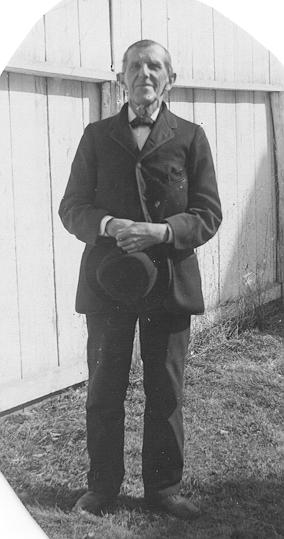For several decades during the second half of the 19th century, William Egolff and his sisters Elizabeth and Barbara operated a boarding house in Carlisle in the three-story brick building at No. 7-11 North Hanover street.
Charles Leeds, reminiscing about Carlisle, recalled Egolf’s boarding house as “one of Carlisle’s leading boarding houses in ante bellum days…They were always most liberally patronized, not only by our town folk, but by persons from Philadelphia, New York and Baltimore, especially during the summer season.”1
The U. S. Census, taken in July 1870, revealed the following boarders at Egolff’s. Thirty-year-old attorney Wilbur F. Sadler, 30-year-old William Trickett, Professor at Dickinson College, Mrs. Herbemont and her 12-year-old daughter Ellen, and 14-year-old Lillie Egolff. Dolly Turner, aged 22, and Harriet Humphries, aged 70, were Egolff’s domestic servants.
It was common for newspapers of the time to mention the names of prominent visitors to town and where they were staying. In its June 7, 1877 edition, the Carlisle Weekly Herald reported that among “the lady guests who are stopping at the Egolff House are Mrs. Robert Davidson, Mrs. Lawrence, her daughter and Mrs. Charles H. Getzendanner. Research revealed who these women were.
Mrs. Robert Davidson, of Philadelphia, was the widow of Rev. Dr. Robert Davidson (1808-1876). Rev. Davidson, a native of Carlisle, was the son of Rev. Robert Davidson the second President of Dickinson College and minister of the First Presbyterian Church of Carlisle. The Davidsons and their children spent three or four months in Carlisle during the summers of 1874 and 1875, and they boarded at Egolff’s.2 The stay at Egolff’s in 1875 was to be Rev. Davidsons’s last. In April 1876, while he and his wife were visiting the Centennial grounds in Philadelphia, he was stricken and died.
Mrs. Lawrence was born Pamela Williams Brown Vinton, in Massachusetts in 1830, the daughter of Brigadier General David H. Vinton. In 1849, she married Hoel Keating Lawrence of Ohio. By 1860, they were living in Wisconsin where her husband was a banker.
When the Civil War broke out, Mr. Lawrence was appointed a government paymaster. In 1864, he was convicted of appropriating government funds; he was cashiered, dishonorably discharged, sentenced to six years of hard labor, and required to stay in prison until he paid a fine of $35,000.3
It’s not known how Mrs. Lawrence came to have a connection with Carlisle, but her daughter, Eleanora,4 married Dickinson College alumnus Dr. Charles H. Gertzendanner of Frostburg, Maryland,5 and her son Thomas was in the cattle business with the Bosler family of Carlisle. In 1883, he sold his “extensive ranche” to J. H. Bosler and William Parker of Carlisle and was determined to “engage still more extensively in the cattle business in Texas.”6
The Herbemonts: Miss Clara Herbemont and her mother were boarding at Egolff’s in November 1877 when Clara fell ill. Her illness became so serious that the Egolff’s had the pavement in front of the house “tanned to deaden the sound.”7
Clara was the daughter of Clara and Alexander Herbemont, Jr. She was born in 1856 at Genoa, Italy where her grandfather, Alexander Herbemont, Sr., was the U. S. Consul. Clara grew up in her grandparent’s house in Columbia, South Carolina, and when her grandfather died in 1863 he left her enough money to enable her to lead a genteel life.8 Unfortunately, her life was cut short at the age of 22. She died at Egolff’s on December 9, 1877. Her funeral was held at St. John’s Episcopal Church. The newspaper reported that “…her remains were enclosed in a beautiful cloth covered casket finely mounted, furnished by A. B. Ewing,”9 and she was laid to rest in Carlisle’s Ashland Cemetery.
Newspaper items during the 1880s and 1890s continued to publish the names of guests and residents at Egolff House, as well as improvements and changes made to the building.
William Egolff, known as Colonel Billy,” died in 1900 at the age of 84. His sister Barbara continued to run the boarding house until June 1902 when she sold its furnishings.10 She had a keen interest in history and donated many items of local significance to the Hamilton Library Association.
Barbara died in Carlisle in 1909. Her obituary described her life and noted that Egolff’s boarding house “was patronized by refined and well-to-do people on account of its excellence. Miss Egolff was the central figure in the household and a fine hostess.”11
Learn more about William Egolff and Barbara Egolff and the sofa they gave the First Lutheran Church in Carlisle that caused a nationwide sensation.

